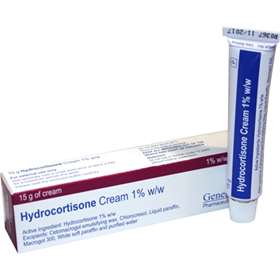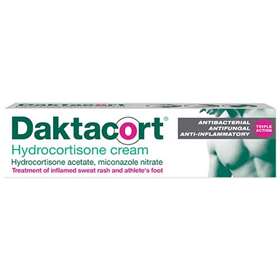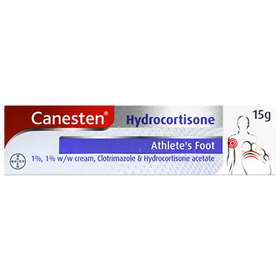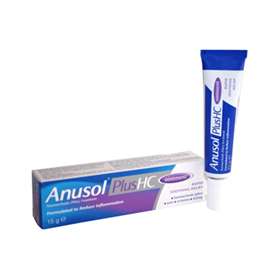What is hydrocortisone?
Hydrocortisone is a synthetic form of cortisol, a
steroid that has numerous effects in humans. When applied to the skin it has an anti-inflammatory effect. It also suppresses the immune system which can alleviate some allergic reactions.
What is a steroid?
Steroids are a class of chemicals found frequently in nature and which tend to have a hormonal effect in humans.
What conditions can hydrocortisone treat?
- Occasional, mild or moderate eczema. Hydrocortisone can provide symptomatic relief for the inflammation and itching associated with eczema.
- Dermatitis (a general term for any irritation of the skin).
- Allergic reactions to insect bites.
- Inflammation caused by fungal skin infections such as infected sweat rash or athlete's foot (typically in conjunction with an antifungal, as is the case with Daktacort HC or Canesten HC).
- Reducing the swelling associated with piles.
- Treating the inflammation and itching associated with severe sunburn.
However, hydrocortisone is a strong and serious chemical and should not be used willy nilly (see next section). If you don't absolutely need a hydrocortisone cream then don't use one! Simple itching conditions can be treated using an anaesthetic such as
Lanacane. Use hydrocortisone creams only where there is inflammation or an allergic reaction that cannot be tackled using less powerful alternatives.
What are the dangers of using hydrocortisone?
Warning: Hydrocortisone does have a tendency to cause skin damage when used in the long term. It can also make the skin thinner. For this reason,
it should not be used on the delicate skin of the face or genitals unless prescribed by a doctor: this is a legal condition of sale. It's worth making this clear:
hydrocortisone products are not suitable for long-term use unless under medical supervision. In general, a week is long enough to be using a hydrocortisone product. This is why we do not provide quantity discounts on hydrocortisone products.
In addition, hydrocortisone is not suitable for pregnant or breastfeeding mothers unless under medical supervision.
When should I stop using a hydrocortisone cream?
Unless prescribed by a doctor, you should stop using hydrocortisone creams as soon as the symptoms have cleared up. If the symptoms persist, you should seek professional advice from a GP or dermatologist.
















